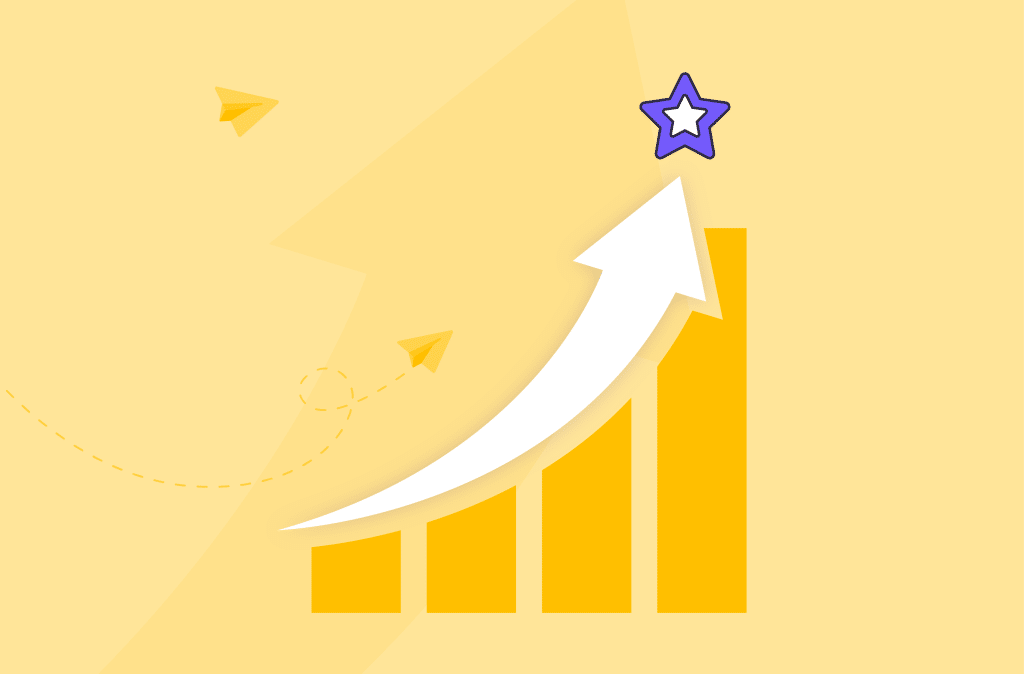Time is a precious resource—we all have the same 24 hours in a day. How you spend this time can have a great impact on lots of things, including this article’s topic: career growth. A great way of making sure you spend time wisely is with time tracking. It can help you see where you can grow your skills and how you can perform your best.
In this guide, we’ll explore this process and take a look at how you can use time tracking to advance in your career. We’ll cover how the strategy will help you stay focused on your long-term goals and achieve shorter-term ones, like getting a raise.
Understanding the role of time tracking in career growth
While many time trackers simply track work hours, lots of others are powerful productivity tools. This makes them invaluable for career development in lots of ways. Let’s start by exploring how time tracking can help identify skill gaps in your work.
Identify skill gaps and other bottlenecks
A valuable benefit of time tracking is its ability to reveal skill gaps. You likely have a general understanding of your strengths and weaknesses. But, employee time tclock software will help you verify this with data. For instance, if you spend a lot of time on tasks that should be simple, it could mean you lack certain knowledge.
But, it is also possible that you’re experiencing some other performance bottlenecks. The most popular examples of these include distractions and delays caused by coworkers. Both of these will keep you from performing your best and are easy to detect with time tracking apps.
Identifying these gaps will enable you to take steps to address them. This not only helps you improve your performance but also prepares you for more advanced roles in your career.
Professional development through time management
Time management is a critical part of any career development strategy. Without it, you will struggle to complete your tasks and achieve your goals. Poor time management can even cause you to miss deadlines. You’ll then be stressed and have less time to work on your career development targets.
Time tracking is the perfect tool to manage your work time effectively. When used with various time management techniques, you’ll be able to perform your best.
Maintaining a healthy work-life balance to prevent burnout
While reaching your career growth goals is important, be sure to not do so at the expense of your work-life balance. It may be tempting to spend more time at work to develop your skills and grow in your role. But, overworking can have many negative effects on your performance by causing burnout. If you get burnt out, your career growth progress will slow down measurably.
Fortunately, tracking and improving your work-life balance is trivial with time tracking. By monitoring how much time you spend working, you can make sure you don’t work too much. Be sure to pay attention to when you work as well. It’s important to avoid working at unreasonable times of the day, such as at night, to prioritize your health and well-being.
Staying engaged and motivated in your job
Professional engagement is an important factor in your productivity. If you’re not aware, this is a measure of how committed you are to your work. Making little progress in your tasks can cause you to lose motivation. But, you may actually be getting a lot done. Lots of your progress could be difficult to see without specialized tools. Time tracking can make these achievements more visible, boosting your motivation.

How a time tracker can help you get a raise
One of the biggest reasons why you might be looking to grow in your career is to get a pay increase. When asking for a raise, you’ll need to provide evidence for why you deserve it. This is where the data collected by time trackers can be invaluable. You can show your managers how you contributed to your company very easily. If you use a time tracker with lots of monitoring features, like WebWork, you’ll have many points of data to convince your managers.
Choosing the right time tracker for career growth
If you want to start using a time tracker at work, there are a few things you should look for to get the best app for your career development needs.
Project and task management features
Managing your projects and tasks at work in a time tracker can be useful in many ways. Key among these is prioritizing tasks, which can be important to complete urgent ones on time. Thus, you’ll be able to avoid stressful situations which often lead to overworking and burnout. So, be sure to choose a time tracker that offers high-quality project and task management functionality.
You should also look for more advanced project management features, like sub-tasks and project grouping. These can help you with larger projects and in cases when you have lots of ongoing projects at once.
Productivity tracking functionality
Productivity data can be quite useful for your career development efforts. It will be especially helpful when asking for a raise. As mentioned previously, more data will also help you make a stronger argument for a pay increase. So, be sure to use a tracker with lots of monitoring features.
Specifically, look for a variety of tracking functionality. For example, app and website usage, activity level, and a time tracker with screenshots can all be used together to verify your performance. They will help you and your supervisors see how much progress you’ve made on your goals and at what pace.
Concluding thoughts
Time tracking is an essential tool for anyone who’s serious about career growth. It provides you with valuable insights into your work habits and helps you manage your time more effectively. Time trackers can keep you motivated and engaged as well by making your work more visible. By choosing the right tracker and using it consistently, you can achieve your professional development goals with ease.

